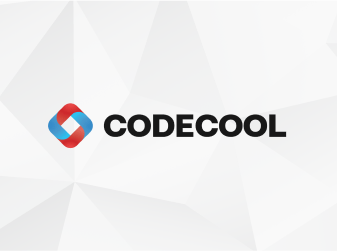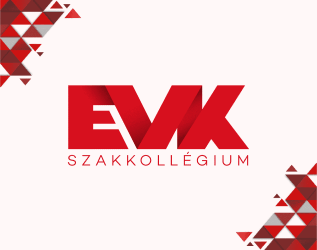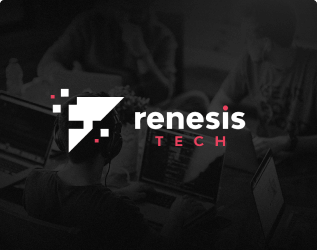
Green Fox Academy is a coding bootcamp with locations in Hungary and The Czech Republic. Their professional team helps candidates to become junior software developers by offering online and on-campus courses. As a unique promise on the market, the Green Fox Team guarantees that successful graduates will find a job in the IT space within six months’, in which they actively support them.
Green Fox Academy has a five-step selection process before admitting their apprentices, and their main goal is to accept those who believe in having the skills to finish the course successfully. After recruiting more than 400 apprentices, Green Fox Academy started to collaborate with Benchmark.games, whose data analyst team created a benchmark profile for them based on the results of their alumni. This way, they can compare the new applicants to their successfully graduated apprentices, measuring not only general mental abilities as before but 10 other vital skills - learning ability, endurance, problem-solving, self-reflection, to name a few. They are all necessary skills to finish a highly intensive course such as those offered by Green Fox Academy.
The co-operation started at the end of 2018 when Green Fox Academy was looking for a solution that would extend or even replace the old recruiting methods and bring something "sexier" into the hiring process. The Psychologist, Selection Manager Fruzsina Fejes explained:
"We consider it our mission to support the selection process by helping candidates with their career change. We want to make the application more attractive as well as dissolve barriers that may come up in connection with formal tests."
Fruzsina Fejes also feels it is an important responsibility to screen out those who are not suitable for entering a developer career without biases. It is beneficial both for the candidate and the coding school.
After some brainstorming sessions, Benchmark.games set up a model tailored to their needs. The coding school company started to implement the games into their hiring process in December 2018. Four months later, even their branch office in Prague began using the game-based assessments.
One year later, in November 2019, the project was re-measured, and the results showed that Benchmark.games' solution predicted candidates' success significantly better than traditional tests.
The dilemma: to accept or to reject candidates
The original recruitment procedure at Green Fox Academy was the following:
Application
Candidates applied online by providing some basic information.Video interview
With the usage of an asynchronous video interview, candidates explained their motivation and proved their language skills.Online test
Candidates took a logical test.Live online interview
In-person interview with the recruiters.Simulation
Trial day with practical group assignments.
As shown in the 3rd step, the pre-selection assessment's logical test played a vital role in the hiring process; however, the recruiters were not 100% convinced of how indicative it was. They were uncertain whether to accept or reject a candidate only based on the traditional logical test. As Fruzsina Fejes recalls:
"Those who passed the logic test with good results were not necessarily successful, and those who did not reach the minimum level were not necessarily unsuccessful during the course. Also, many of our mentors would not have been admitted as a student based on their test results."
Besides the recruiters' skepticism, the tests they used previously were long and boring, and as a consequence, recruiters wanted something shorter and more enjoyable. Fruzsina, the I/O psychologist selection manager named branding as one of their goals and added to that by revolutionizing the hiring process. They wanted to create a more youthful and modern pre-screening connected with Green Fox Academy's brand communication.
"We want to impress our candidates, and the games do it for us!"
"The design and customer-friendly platform highly contributed to the final decision of choosing Benchmark.games' solution."
says Fruzsina Fejes. The Green Fox recruiters wanted to impress candidates, and the games did just the job. Before choosing Benchmark.games, they tried some other tools and services; however, neither of those met all the requirements.
"For instance, we tried Diagrammatic Reasoning, but it stressed out most of the candidates and resulted in a high churn rate," explains Fruzsina Fejes. "When we tested other games, they either missed the number of measured competencies, or they had bad design and provided poor user experience."
By using Benchmark.games one can analyze 10 competencies in each candidate. It then provides helpful information for the in-person interviews, so recruiters know what to pay attention to or which field they want to further tap into.
The step-by-step benchmarking process
In order to fine-tune the benchmarking process, Green Fox Academy and Benchmark.games had to work closely together. The following steps describe how the benchmarking preparations happened in practice:
- BG (Benchmark.games) assessed current and former coding students.
- GFA (Green Fox Academy) provided the previously used logic test results to BG.
- BG then analyzed the correlation between successful graduates and game results as well as between the logic test and game results.
- BG assessed IT professionals and analyzed whether the well-performing students are more like them compared to the lower-performing ones.
- Based on all of the data, BG created the benchmarking model.
The results were re-measured one year later, which showed that those students who performed better during the game-based assessment had a higher chance to perform better throughout the coding courses. As it turned out, Benchmark. games' solution was also more indicative of high performance than the logic tests.
Today Green Fox Academy actively uses game-based pre-screening in three different locations: Budapest, Prague and Bratislava.



